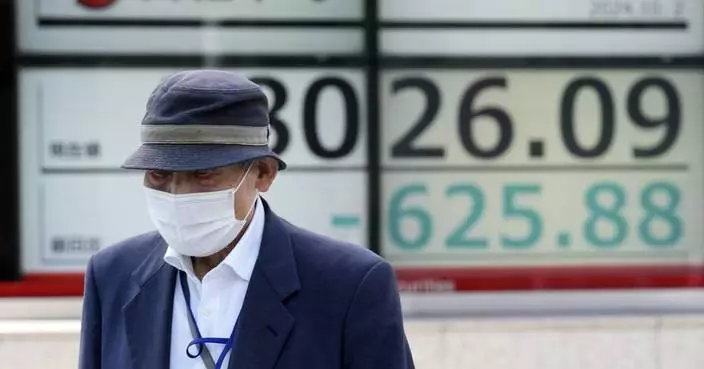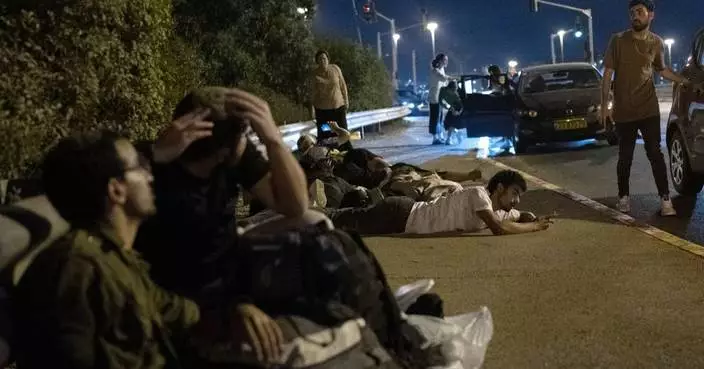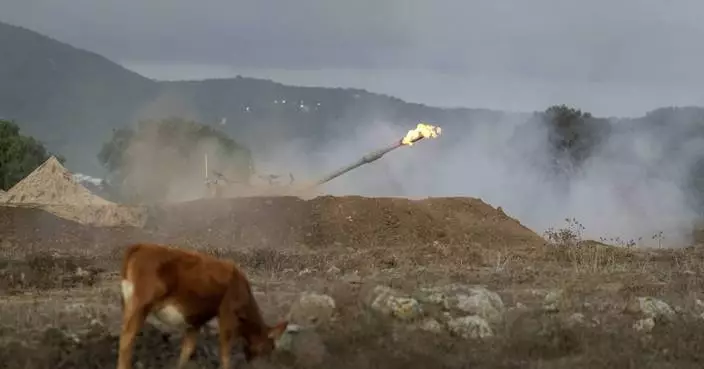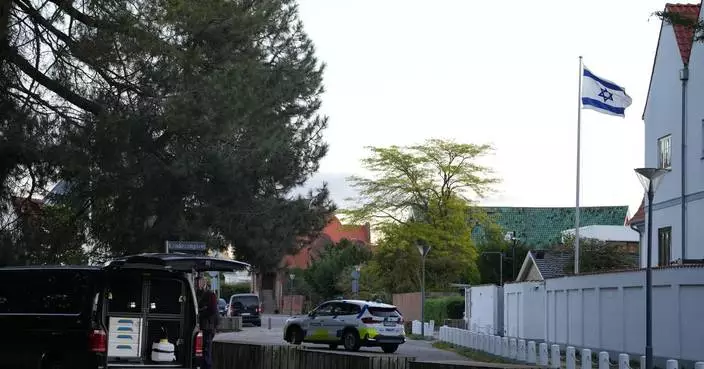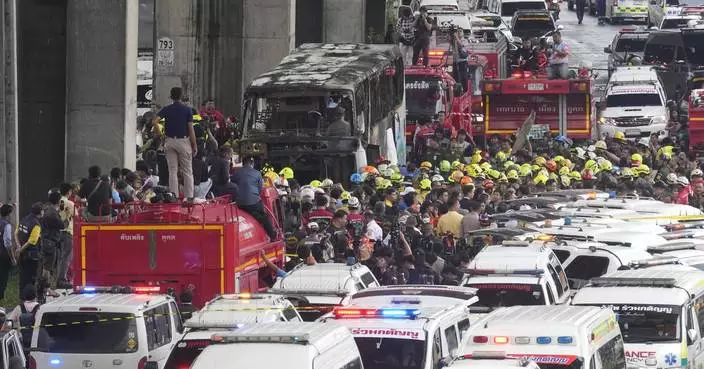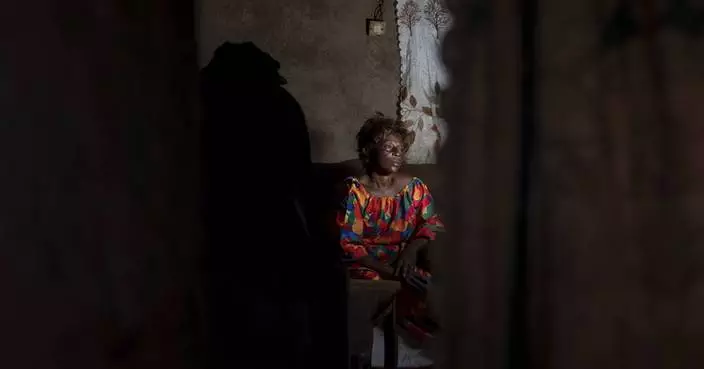SACRAMENTO, Calif. (AP) — California wants to help end the everyday household debate over whether the food in the fridge is still good to eat.
Food labels that say “sell by” or “best before” are misleading because they have no universal meaning under current laws. Now California wants to crack down on such practices, bidding to help consumers stop playing guessing games with produce and other items in their fridges.
The state is the first to ban food labels such as “sell by” or “best before” under a law signed by Gov. Gavin Newsom. The legislation signed by Newsom over the weekend aims at reducing both food waste and the state's climate-warming emissions.
There are more than 50 different date labels on packaged food sold in stores, but the information is largely unregulated and does not relate to food safety. “Sell by” dates, for example, often act as a guide for stores to pull products from the shelf and not as an indicator of whether the product is still safe to consume.
With no federal regulations dictating what information these labels should include, the stamps have led to consumer confusion — and nearly 20% of the nation's food waste, according to the Food and Drug Administration. In California, that's about 6 million tons of unexpired food that's tossed in the trash each year.
“Having to wonder whether our food is still good is an issue that we all have struggled with," said Democratic Assemblymember Jacqui Irwin, author of the bill.
The new law "is a monumental step to keep money in the pockets of consumers while helping the environment and the planet,” she added in her statement.
The law is set to take effect in July 2026, establishing a new standard for food labeling in California. It will require the use of “Best if Used By” label to signal peak quality and “Use By” label for product safety, an approach recommended by federal agencies. The law provides exemption for eggs, beer and other malt beverages.
The California law comes as similar efforts around the country remain halted at the federal level. State lawmakers and advocates said they also spent the last decade trying to pass legislation to reduce food labeling confusion and cut down on food waste. A similar measure died before reaching the governor's desk in 2016. Then-Gov. Jerry Brown also signed a bill in 2017 to establish voluntary uniform-labeling protocol but few companies ended up following the honor system.
“Widespread implementation that was basically committed to by industry wasn’t happening,” said Erica Parker with Californians Against Waste, who sponsored the bill. “Food waste rates are not decreasing, they’re increasing.”
Supporters hope the legislation could pave the way for new food labeling standards in the U.S., though it's not immediately clear if the new law and the massive California market will push companies to standardize food labeling for all products in the country.
“California has such a large market share that we do think this will push manufacturers,” said Nina Sevilla with Natural Resources Defense Council, who also sponsored the bill. “The hope is that California serves as a model either for other states or ultimately to push action at the federal level.”
Shopper Jasmine Acosta, 23, said she believes most people don’t understand the current language used on food labels.
“It’s confusing to most consumers,” Acosta told The Associated Press as she shopped Tuesday at a Smart & Final store in Los Angeles.
She used to work at a small grocery store, so she’s developed the habit of examining her meat purchases for smell or discoloration before using the food. A sell-by date helps the grocer adhere to a “first in first out” method for its products and get ready for the next shipment arrival, but doesn’t mean the food has gone bad, according to Acosta.
While shopping Tuesday, she picked up a pack of meat that said “use or freeze by” -- phrasing that she believes is relatively clear compared to other language but could still be confusing.
“It would obviously help everybody try to be on the same spectrum and make sure everything’s able to be used by the consumers, or if not it’s just a waste of money,” Acosta said.
Associated Press writer Jaimie Ding contributed to this report from Los Angeles.
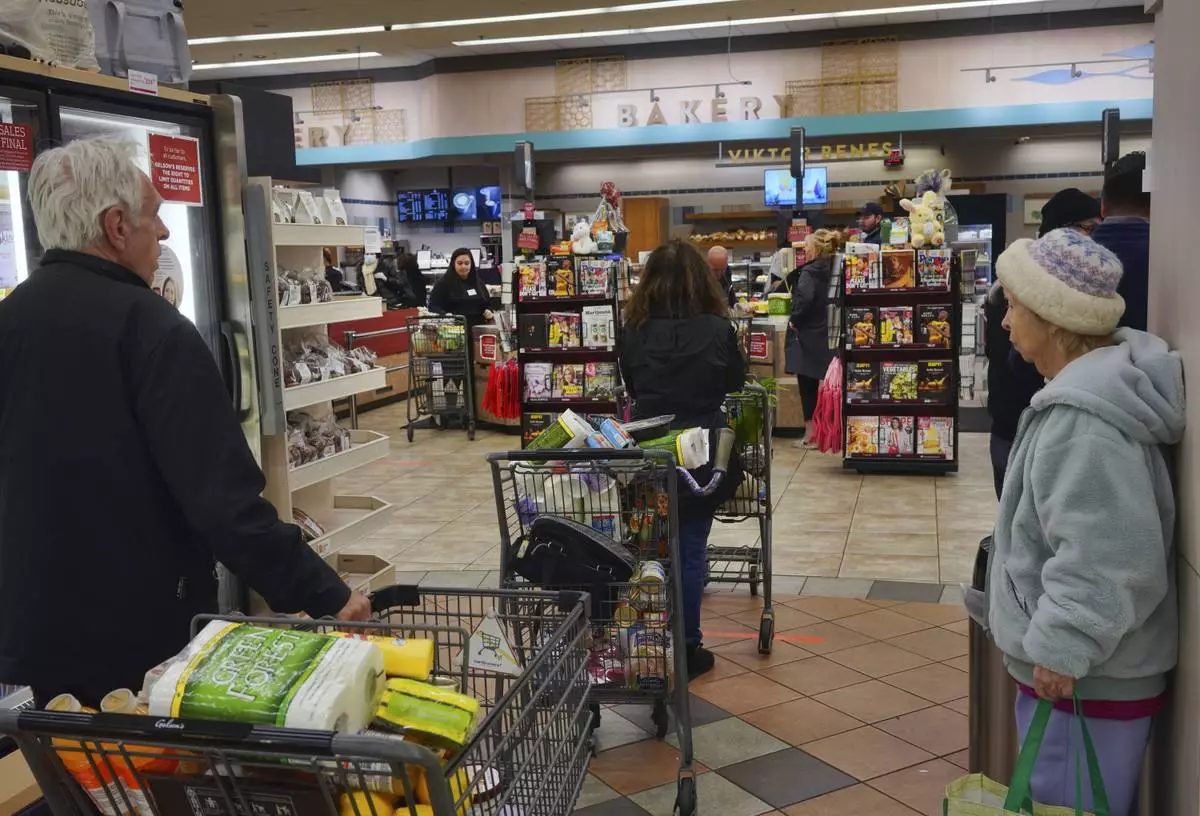
FILE - Shoppers wait in line to buy groceries at a Gelson's supermarket Friday, March 20, 2020, in the Sherman Oaks section of Los Angeles. (AP Photo/Richard Vogel, File)

FILE - A customer looks at refrigerated items at a Grocery Outlet store in Pleasanton, Calif., Thursday, Sept. 15, 2022. (AP Photo/Terry Chea, File)
BEIRUT (AP) — When Israel bombed buildings outside the southern Lebanese city of Sidon, Mohamed Arkadan and his team rushed to an emergency unlike anything they had ever seen.
About a dozen apartments had collapsed onto the hillside they once overlooked, burying more than 100 people. Even after 17 years with the civil defense forces of one of the world's most war-torn nations, Arkadan was shocked at the destruction. By Monday afternoon — about 24 hours after the bombing — his team had pulled more than 40 bodies, including children's, from the rubble, along with 60 survivors.
The children's bodies broke his heart, said Arkadan, 38, but his team of over 30 first responders' inability to help further pained him more. Firetrucks and ambulances haven’t been replaced in years. Rescue tools and equipment are in short supply. His team has to buy their uniforms out of pocket.
An economic crisis that began in 2019 and a massive 2020 port explosion have left Lebanon struggling to provide basic services such as electricity and medical care. Political divisions have left the country of 6 million without a president or functioning government for more than two years, deepening a national sense of abandonment reaching down to the people the country depends on in emergencies.
“We have zero capabilities, zero logistics,” Arkadan said. “We have no gloves, no personal protection gear.”
Israel’s intensified air campaign against Hezbollah has upended the country. Over 1,000 people have been killed in Israeli strikes since Sept. 17, nearly a quarter of them women and children, according to the Health Ministry. Hundreds of thousands of people have fled their homes, sleeping on beaches and streets.
The World Health Organization said over 30 primary health care centers around Lebanon’s affected areas have been closed.
On Tuesday, Israel said it began a limited ground operation against Hezbollah and warned people to evacuate several southern communities, promising further escalation.
Lebanon is “grappling with multiple crises, which have overwhelmed the country’s capacity to cope,” said Imran Riza, the U.N.'s humanitarian coordinator for Lebanon, who said the U.N. had allocated $24 million in emergency funding for people affected by the fighting.
Exhausted medical staff are struggling to cope with the daily influx of new patients. Under government emergency plans, hospitals and medical workers have halted non-urgent operations.
In the southern province of Tyre, many doctors have fled along with residents. In Nabatiyeh, the largest province in southern Lebanon, first responders say they have been working around the clock since last week to reach hundreds of people wounded in bombings that hit dozens of villages and towns, often many on the same day.
After the bombing in Sidon nearly 250 first responders joined Arkadan's team, including a specialized search-and-rescue unit from Beirut, some 45 kilometers (28 miles) to the north. His team didn't have the modern equipment needed to pull people from a disaster.
“We used traditional tools, like scissors, cables, shovels,” Arkadan said.
“Anyone here?” rescuers shouted through the gaps in mounds of rubble, searching for survivors buried deeper underground. One excavator removed the debris slowly, to avoid shaking the heaps of bricks and mangled steel.
Many sought refuge in the ancient city of Tyre, 20 kilometers (12 miles) north of the border with Israel, thinking it was likely to be spared bombardment. More than 8,000 people arrived, said Hassan Dbouk, the head of its disaster management unit.
He said that there were no pre-positioned supplies, such as food parcels, hygiene kits and mattresses, and moving trucks now is fraught with danger. Farmers have been denied access to their land because of the bombings and the municipality is struggling to pay salaries.
Meanwhile, garbage is piling up on the streets. The number of municipal workers has shrunk from 160 to 10.
“The humanitarian situation is catastrophic,” Dbouk said.
Wissam Ghazal, the health ministry official in Tyre, said in one hospital, only five of 35 doctors have remained. In Tyre province, eight medics, including three with a medical organization affiliated with Hezbollah, were killed over two days, he said.
Over the weekend, the city itself became a focus of attacks.
Israeli warplanes struck near the port city’s famed ruins, along its beaches and in residential and commercial areas, forcing thousands of residents to flee. At least 15 civilians were killed Saturday and Sunday, including two municipal workers, a soldier and several children, all but one from two families.
It took rescuers two days to comb through the rubble of a home in the Kharab neighborhood in the city’s center, where a bomb had killed nine members of the al-Samra family.
Six premature babies in incubators around the city were moved to Beirut. The city’s only doctor, who looked after them, couldn’t move between hospitals under fire, Ghazal said.
One of the district’s four hospitals shut after sustaining damage from a strike that affected its electricity supply and damaged the operations room. In two other hospitals, glass windows were broken. For now, the city’s hospitals are receiving more killed than wounded.
“But you don’t know what will happen when the intensity of attacks increases. We will definitely need more.”
Hosein Faqih, head of civil defense in the Nabatiyeh province, said that “we are working in very difficult and critical circumstances because the strikes are random. We have no protection. We have no shields, no helmets, no extra hoses. The newest vehicle is 25 years old. We are still working despite all that.”
At least three of his firefighters’ team were killed in early September. Ten have been injured since then. Of 45 vehicles, six were hit and are now out of service.
Faqih said he is limiting his team’s search-and-rescue missions to residential areas, keeping them away from forests or open areas where they used to put out fires.
“These days, there is something difficult every day. Body parts are everywhere, children, civilians and bodies under rubble,” Faqih said. Still, he said, he considers his job to be the safety net for the people.
“We serve the people, and we will work with what we have.”
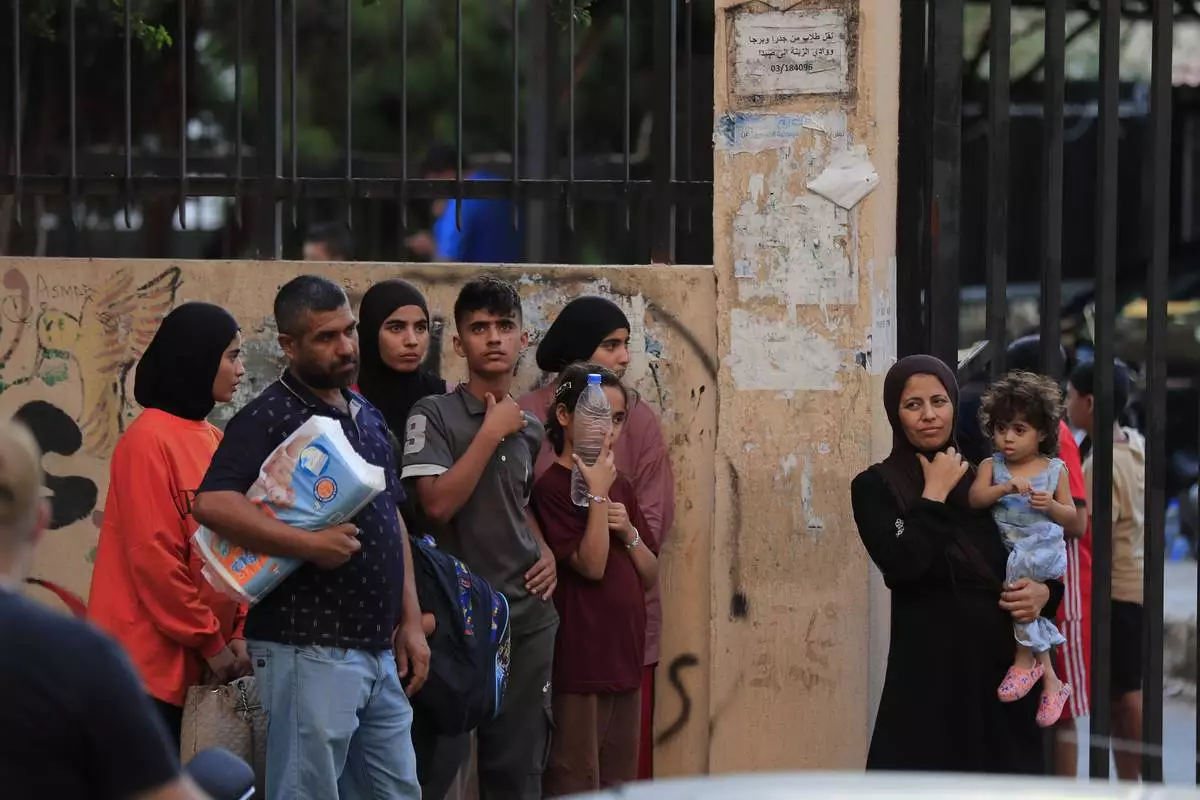
FILE - People fleeing the southern villages amid ongoing Israeli airstrikes, stand outside a school turned into a shelter in Sidon, Monday, Sept. 23, 2024. (AP Photo/Mohammed Zaatari, File)
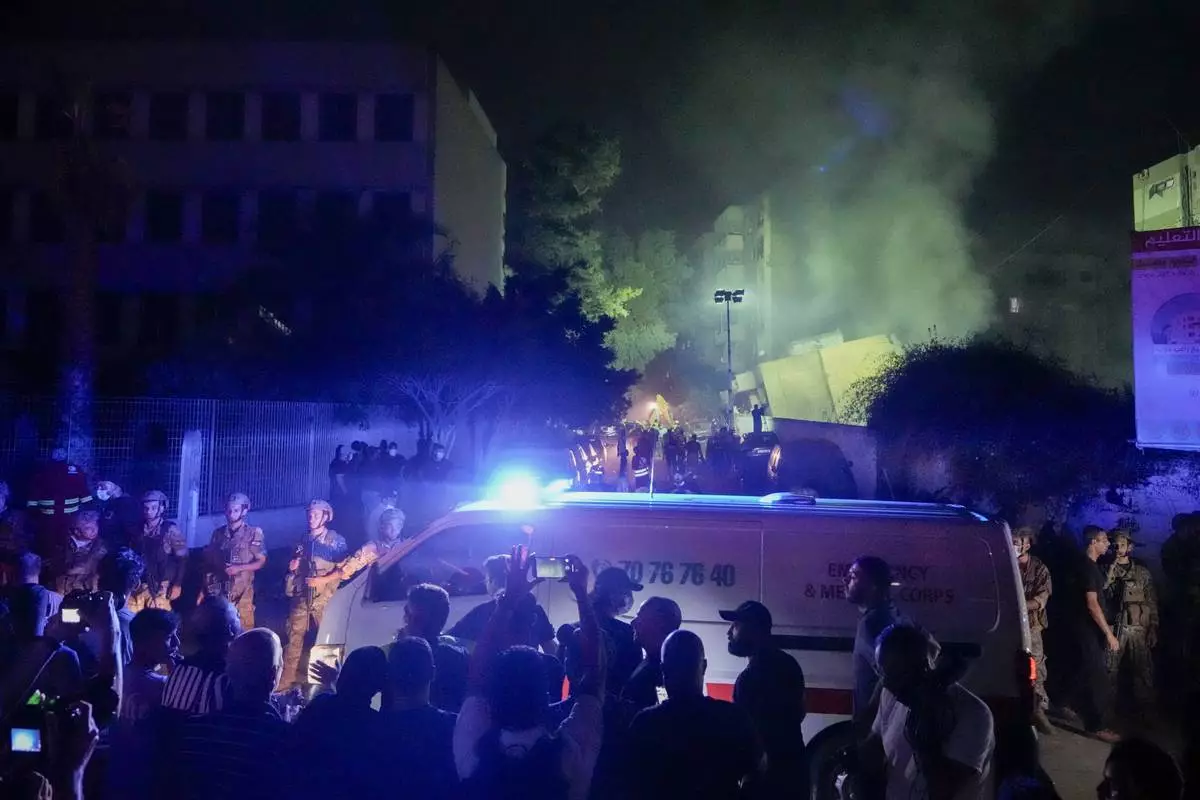
FILE - Ambulances arrive at the site of an Israeli airstrike in Beirut's southern suburbs Friday, Sept. 27, 2024. (AP Photo/Bilal Hussein, File)

FILE - A wounded girl lies in a hospital bed in the southern village of Saksakieh, Lebanon, Tuesday, Sept. 24, 2024. (AP Photo/Mohammed Zaatari, File)
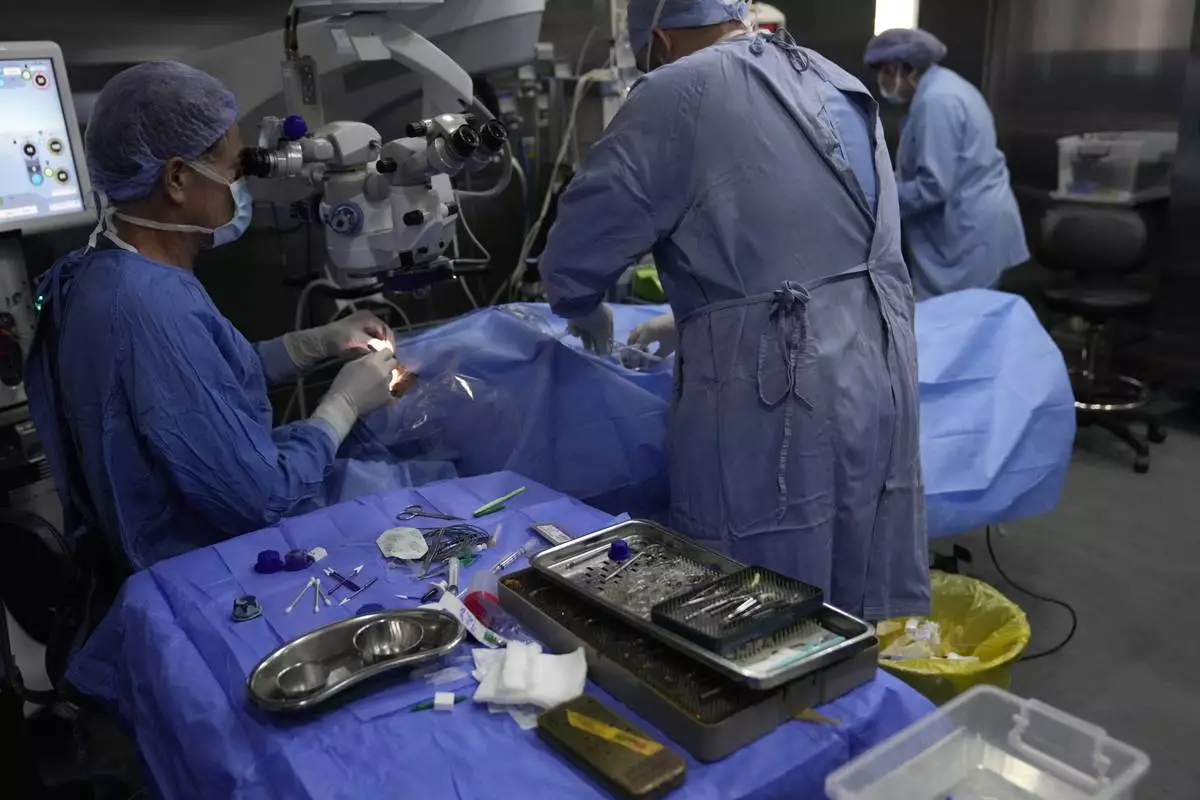
FILE - Elias Jaradeh, a legislator and an ophthalmologist, left, who has conducted dozens of operation for victims of this week's attack in Lebanon, makes an eye surgery operation for a man who was injured in the explosion of one of the handheld devices, at the Eye Specialist hospital, in Beirut, Lebanon, Friday, Sept. 20, 2024. (AP Photo/Hussein Malla, File)
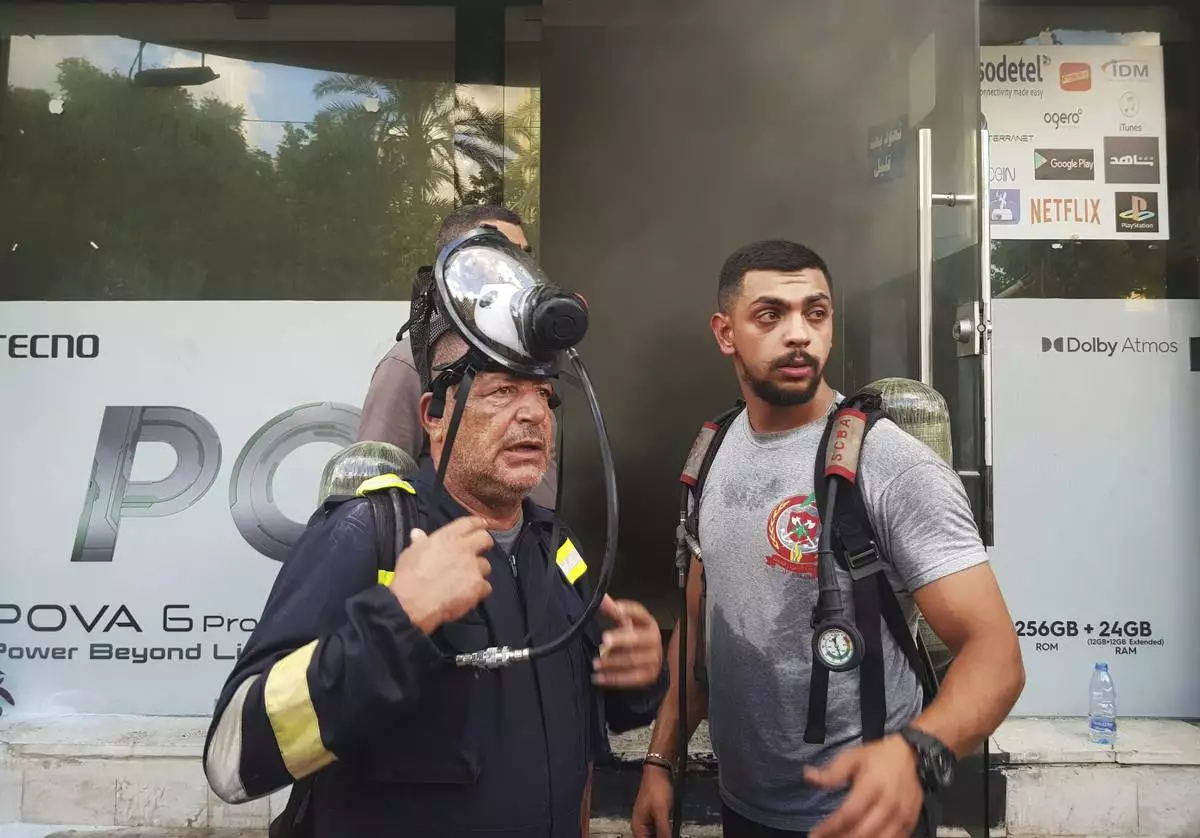
FILE - Firefighters stand outside a damaged mobile shop after what is believed to be the result of a walkie-talkies exploding inside it, in the southern port city of Sidon, Lebanon, Wednesday, Sept. 18, 2024. (AP Photo/Mohammed Zaatari, File)
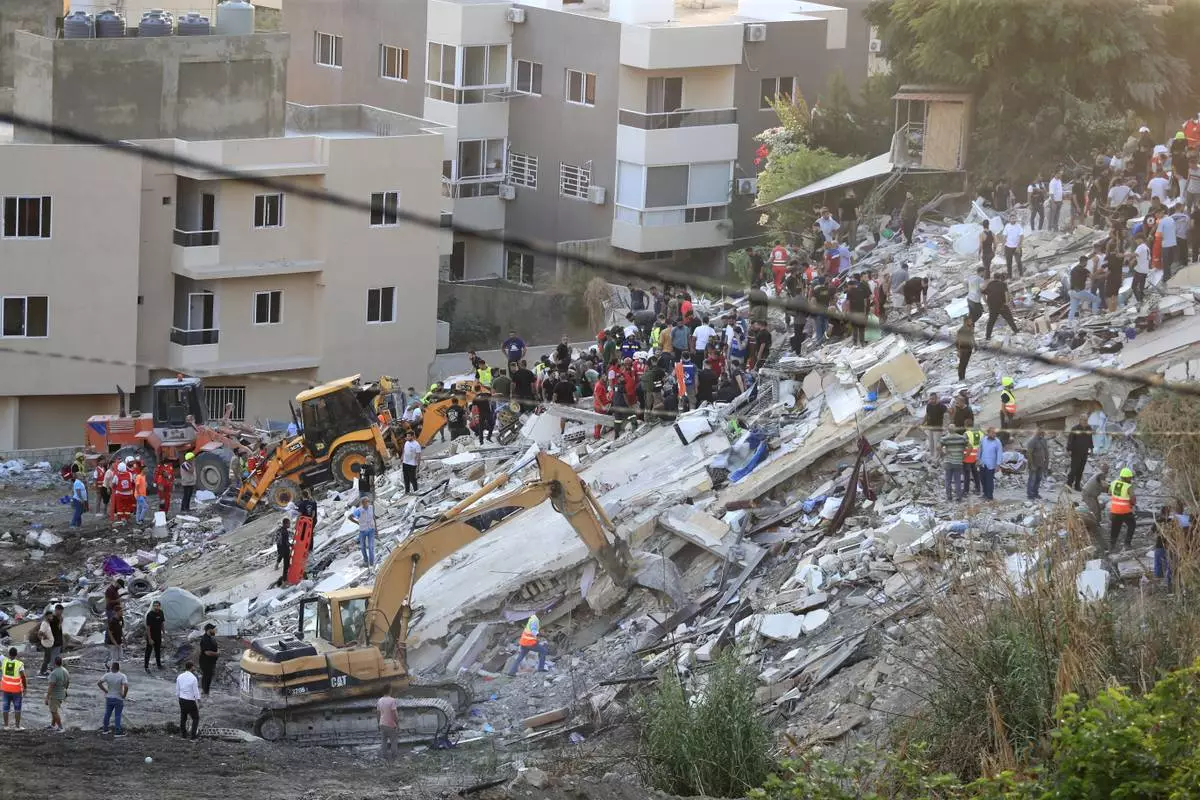
FILE - People and rescue teams search for victims after an Israeli airstrike hit two adjacent buildings, in Ain el-Delb neighbourhood east of the southern port city of Sidon, Lebanon, Sunday, Sept. 29, 2024. (AP Photo/Mohammed Zaatari, File)
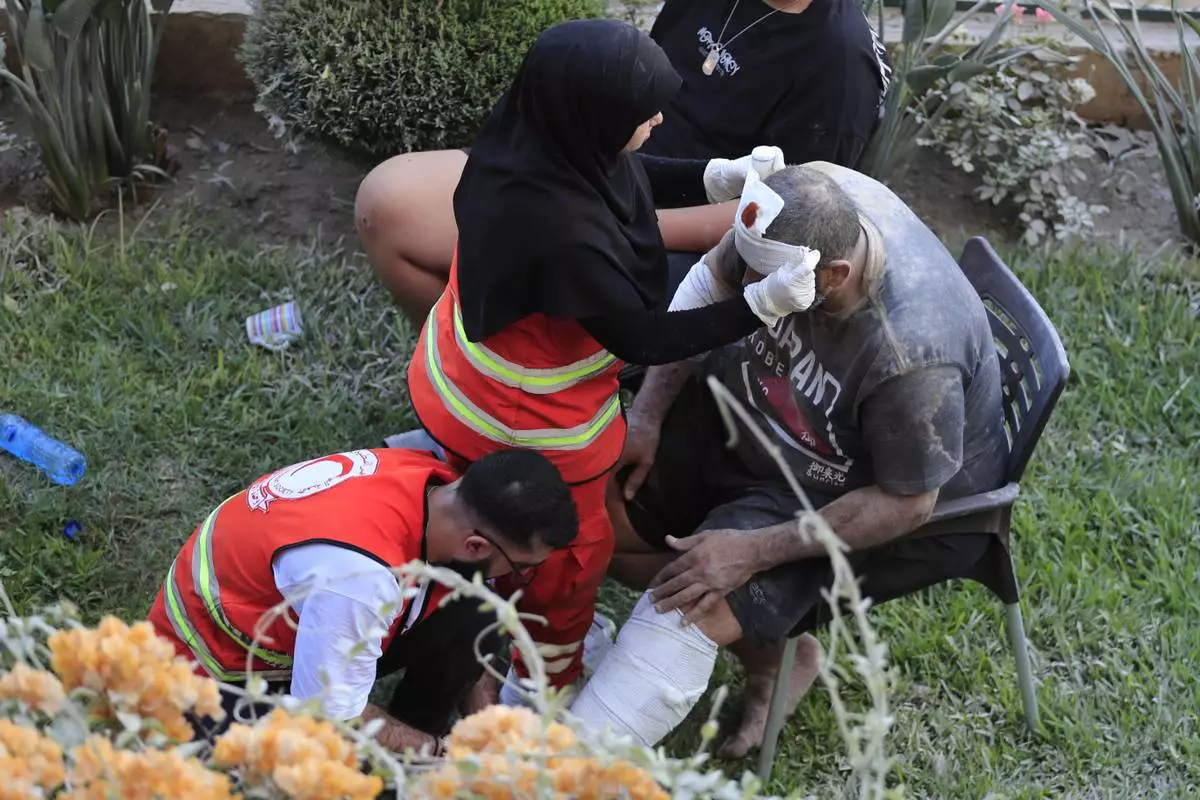
FILE - Paramedics treat a man who was injured after an Israeli airstrike hit two adjacent buildings east of the southern port city of Sidon, Lebanon, Sunday, Sept. 29, 2024. (AP Photo/Mohammed Zaatari, File)













